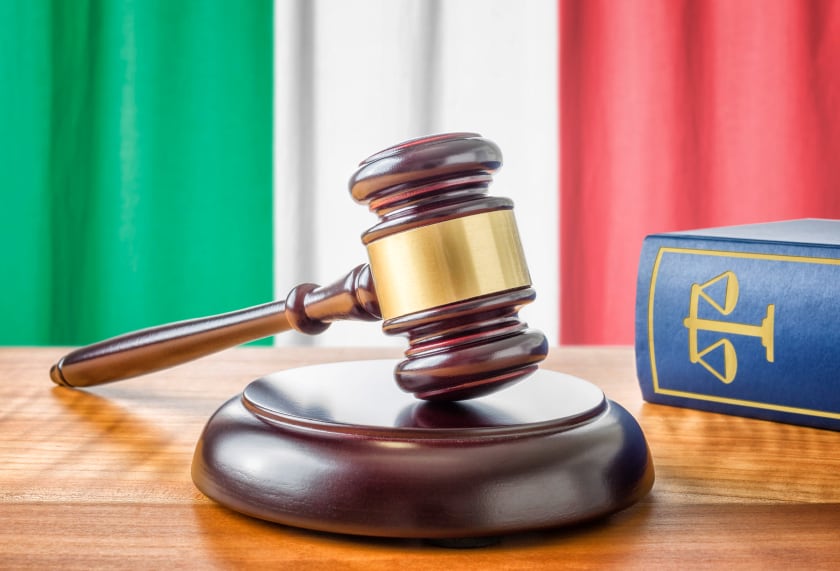The new decree, published in the Italian ministry of health’s official journal, now contains the list of plant substances and preparations eligible for use in food supplements with additional instruction to ensure an enhanced level of consumer protection.
According to Luca Bucchini, managing director of Hylobates Consulting, Italy has confirmed its “liberal attitude to botanicals,” adding that it comes at a time when the botanicals industry, including the Italian one, craves a larger EU market.
“I am concerned that this new decree does not help as much as it should have,” he said highlighting the shortfall featured on the updated Belfrit list.
The alignment of sorts with the register France and Belgium adhere to was according to Bucchini expected, but ultimately remained disappointing.
‘Italy misaligned with Belgium and France’

“With over a thousand plants included, the list of plants allows for much innovation in formulations of final products,” said Bucchini.
“All plants are listed by scientific name, taxonomic family, plant parts permitted and conditions of use. 57 plants have special warnings, and at least 25 have concentration limits. 38 have restricted use in pregnancy.
“Unfortunately Italy has decided not to align itself on warnings with Belgium and France; therefore businesses will have to adapt labels and marketing and even formulations even within the Belfrit countries.”
In a typical scenario, plants with anthraquinones such as Senna alexandrina Mill. or Cassia fistula L. will now have to carry a specific warning such as "Not for children under the age of 12. Consult your doctor if you are pregnant or breastfeeding. Do not use for prolonged periods without consulting your doctor".
In contrast with other Member States, no maximum limits are set, and the warning is less stringent than in France, despite the European Food and Safety Authority’s (EFSA) recent concerns.
“In this respect, Italy confirms its sharp contrast not only with Member States that consider such plants as fit for medicinal use only, but also with relatively like-minded France or Belgium,” Bucchini commented.
“In addition, in the case of green tea, on which EFSA also has recently raised a number of concerns, Italy does not set any limits, or mandatory warning, contrary to other Belfrit countries.”
Decree details
The decree includes two annexes, one of which is a new list of plants. The second consists of guidelines to ensure compliance of botanicals in terms of safety and quality.
They are, to some extent, "miniGMPs" and are similar, though less demanding, than France's guidelines in the 2014 "Arrêté des plantes," said Bucchini, who added that the guidelines had been in place, but were not explicitly legally binding.
“Therefore, manufacturers of botanicals and of finished products should be ready to provide the required information to their clients and to authorities.”
“It is of course a missed opportunity not to have harmonised the requirements with France at least,” Bucchini added.
Of note are specific guidelines that note only preparations of the listed plants, which are not "usual", and result in botanicals with a new composition, raising potential novel food status issues.
This is important because some Member States continue to require extensive research on the novel food status of botanicals, even when the preparations are well known.
Italy’s motivations
Commenting on the implications of Italy’s actions, Bucchini added that the country chose to minimise the impact on the industrial sector rather than contribute to the harmonisation process, even at the cost of weakening Belfrit.
“EU partners will probably see the French and Belgian implementation of Belfrit as more credible, and companies, when applying for mutual recognition, may be wise in choosing the French and Belgian warnings and limits rather than the Italian ones,” Bucchini explained.
“Italian companies, which have contributed to this more liberal regime and opposed more stringent rules, may need to reformulate products when approaching other EU markets, despite their growing interest in intra-EU trade.”
Bucchini also pointed out the list of plants could be updated without formal rule-making, for example when mutual recognition results in new plants being accepted.
“Unfortunately, the provision to apply for mutual recognition - ie food supplements with botanicals not listed in the Italian list - requires proof of legal marketing, and that the botanicals are not "novel foods,” he said.
“Most Member States do not supply such certification, and it goes beyond what EU rules on mutual recognition prescribe.”
Decree rules are applicable from January 9th 2019. However, stocks of labelled products can be exhausted after that date.


